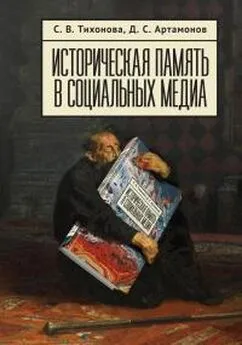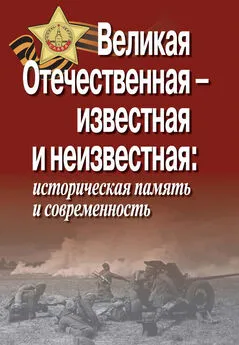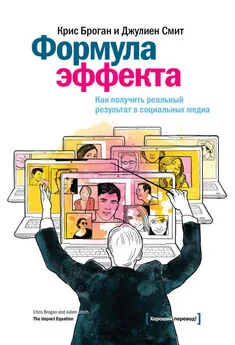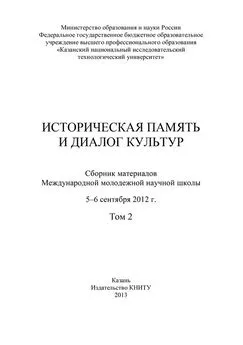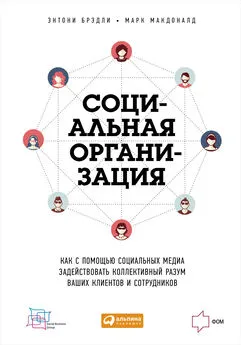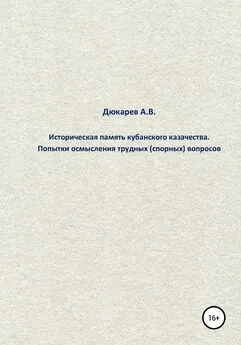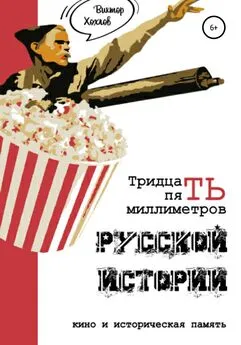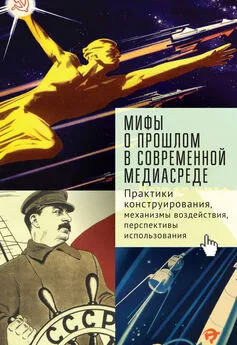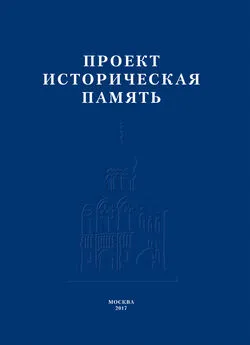Софья Тихонова - Историческая память в социальных медиа
- Название:Историческая память в социальных медиа
- Автор:
- Жанр:
- Издательство:ООО «ЛитРес», www.litres.ru
- Год:2021
- ISBN:нет данных
- Рейтинг:
- Избранное:Добавить в избранное
-
Отзывы:
-
Ваша оценка:
Софья Тихонова - Историческая память в социальных медиа краткое содержание
Историческая память в социальных медиа - читать онлайн бесплатно ознакомительный отрывок
Интервал:
Закладка:
Milner RM. Pop Polyvocality: Internet Memes, Public participation, and the Occupy Wall Street Movement // International Journal of Communication. 2013. Vol. 7. P. 2357–2390.
Mink G. Between Reconciliation and the Reactivation of Past Conflicts in Europe: Rethinking Social Memory Paradigms // Czech Sociological Review. – 2008. Vol. 44, N 3. P. 469–490.
Nijakowski LM. Polska polityka pami^ci. Esej socjologiczny. Warszawa: Wydawnictwa Akademickiei Profesjonalne, 2008. 286p.
Noveck B. Wiki Government: How Technology Can Make Government Better, Democracy Stronger, and Citizens More Powerful. Washington, 2009. 224 p.
Onken E.-C. The Baltic States and Moscow’s 9 May Commemoration: Analyzing Memory Politics in Europe // Europe-Asia Studies. 2007. Vol. 59, N 1. P. 23–46.
Pence Ch.H. How to do digital philosophy of science // Philosophy of Science. 2018. Vol. 85. № 5. P. 1–20
Piata A. When Metaphor Becomes a Joke: Metaphor Journeys from Political Ads to Internet Memes // Journal of Pragmatics. 2016. No. 106. P. 39–56. https://doi.org/10.1016/j.pragma.2016.10.003
Rettberg J.W. Seeing Ourselves Through Technology: How We Use Selfies, Blogs and Wearable Devices to See and Shape Ourselves. New York, Palgrave Macmillan. 2014. 101 p.
Rheingold H. Smart Mobs: The Next Social Revolution. Cambridge, 2002. 266 p.
Rodin P, Ghersetti M, Oden T. Disentangling rhetorical subarenas of public health crisis communication: A study of the 2014–2015 Ebola outbreak in the news media and social media in Sweden // J Contingencies and Crisis Management. 2018; 00:1-10. https://doi.org/10.1111/1468-5973.12254
Rubinstein D. Gift of the Selfie // Bieber A. (ed.) Ego Update: The Future of Digital Identity. Dusseldorf: NRW-Forum. 2015. pp. 162–177.
Ruchatz J. Selfie Reflexivity: Pictures of People Taking Photographs // Eckel J., Ruchatz J., Wirth S Exploring the Selfie: Historical, Theoretical, and Analytical Approaches to Digital Self-Photography. Marburg: Palgrave Macmillan. 2018. pp. 49–82.
Runia E. Presence // History and Theory. 2006. № 45. P. 1–29. DOI: I0.iiii/j.i468-2303.2006.00346.x
Rushkoff D. Media Virus: Hidden Agendas in Popular Culture. N. Y.: Ballantine Books. 1996. 345 p.
Santayana G. Soliloquies in England and later soliloquies. London: Constable, 1922. 282 р.
Schmitt Fr.F. Socializing Epistemology. In: Socializing Epistemology. The Social Dimensions of Knowledge. Ed. by Fr.F. Schmitt. Rowman a. Littlefield pbl., inc. 2004.
Seefeldt D, Thomas W.G. Intersections: History and New Media. What is Digital History? // Perspectives on History. 2009. № 5. URL: https://www.historians.org/publications-and-directories/perspec-tives-on-history/may-2009/what-is-digital-history#note3(дата обращения: 06.04.2021)
Senft T.M., Baym N.K. What Does the Selfie Say? Investigating a Global Phenomenon. Introduction // International Journal of Communication. 2015. № 9. P. 1588–1606.
Shao Ch., Ciampaglia G.L., Varol O., Yang K.-Ch., Flammini A. & Menczer F. The spread of low-credibility content by social bots. // Nature Communications. 2018. Vol. 9. Article number: 4787. URL: https://www.nature.com/articles/s41467-018-06930-7(Дата обращения 29.03.2021).
Shifman L. Memes in Digital Culture. Massachusetts: MIT Press. 2014. 200 р.
Silence , Screen, and Spectacle / Eds. Lindsey A. Freeman, Benjamin Nienass, Rachel Daniell. N.Y.; Oxford: Berghahn, 2014.
Solber J. Googling, the Archive: Digital Tools and the Practice of History // Advances in the History of Rhetoric. 2012. Vol. 15. Issue 1. P. 5376. DOI: 10.1080/15362426.2012.657052
Surowiecki J. The Wisdom of Crowds: Why the Many Are Smarter Than the Few and How Collective Wisdom Shapes Business, Economies, Societies and Nations. N.Y., 2004. 296 p.
Tapscott D., Williams E. Wikinomics: How Mass Collaboration Changes Everything. N.Y., 2006. 324 p.
Thaller M. The Need for a Theory of Historical Computing // History and Computing II / Ed. by P. Denley, S. Fogelvik, and C. Harvey. Manchester: Manchester University Press, 1989. P. 2–11.
The Invention of tradition / Ed. by Eric Hobsbawm a. Terence Ranger. Cambridge etc.: Cambridge univ. press, 1983. 320 p.
Tifentale A. Making Sense of the Selfie: Digital Image-Making and Image-Sharing in Social Media // Scriptus Manet. 2015 № 1. P. 47–59.
Tifentale A., Manovich L. Selfiecity: Exploring Photography and SelfFashioning in Social Media // Berry DM, Dieter M. Postdigital Aesthetics. Art, computation and design. UK: Palgrave Macmillan. 2014. P. 109–122.
Uricchio W. Simulation, History, and Computer Games // Handbook of Computer Game Studies, edited by Raessens J. and Goldstein J. Cambridge: MIT Press. 2005. P. 327–338.
Vosoughi S., Roy D, Aral S. The spread of true and false news online // Science. 09 Mar 2018. Vol. 359. Issue 6380. P. 1146–1151. DOI: 10.1126/science.aap9559.
Winter J. Historical Remembrance in the Twenty-First Century // The Annals of the American Academy of Political and Social Science. 2008. N 617. P. 6–13.
Wolff R.S. The Historian’s Craft, Popular Memory, and Wikipedia // Writing History in the Digital Age, edited by Jack Dougherty and Kristen Nawrotzki, University of Michigan Press, Ann Arbor, 2013, pp. 6474. JSTOR, www.jstor.org/stable/j.ctv65sx57.10. (accessed 6.04.2021).
Zhu F. The “affective” ethics of computer games: ‘aesthetic education’, the ‘technologies of the self, and the cultivation of an “affectivity” // The Philosophy of Computer Games Conference. Copenhagen, 2018. URL: https://www.academia.edu/37878789/The_affective_ethics_of_computer_games_aesthetic_education_the_technolo-gies_of_the_self_and_the_cultivation_of_an_affectivity (accessed: 19.04.2021).
Примечания
1
Републикация письма от 05.10.2013 // URL: http://mosvedi.ru/article/20608.html(дата обращения 28. 03. 2021).
2
Посещение Лебединского горно-обогатительного комбината // URL: http:// www.kremlin.ru/events/president/news/55052(дата обращения 28. 03. 2021).
3
Яценюк поведал миру о «вторжении СССР в Германию» // Официальный сайт «Вести интернет-газета» (VESTI.RU) [М., 2015] // URL: http://www.vesti.ru/doc.html?id=2262213(дата обращения 28. 03. 2021).
4
МИД Польши – Освенцим освобождали украинцы // URL: https://versia.ru/gzhegozh-sxetyna-podelilsya-istoricheskimi-poznaniyami(дата обращения 28. 03. 2021).
5
О. Кашин. Быков и Гитлер. Наши «карикатуры на пророка» – про войну // URL: https://republic.ru/posts/92830?code=593103b386bd0e0f4c97f65f705c2b55 (дата обращения 28. 03. 2021); Д. Быков. Как можно было там увидеть реабилитацию фашизма? // URL: https://echo.msk.ru/blog/partofair/2355047-echo/(дата обращения 28. 03. 2021).
6
Русский летописец // URL: https://ruvera.ru/news/russkij_letopisec(дата обращения 28. 03. 2021).
7
Там же.
8
Там же.
9
Там же.
10
Историк оспорил подлинность «Русского летописца», опровергающего роль Киева в рождении Руси // URL: https://tsargrad.tv/news/istorik-osporil-podlinnost-russkogo-letopisca-oprovergajushhego-rol-kieva-v-rozhdenii-rusi_188489(дата обращения 28. 03. 2021).
11
Старообрядческий портал заявил, что «матерью городов русских» был не Киев // URL: https://ria.ru/20190313/1551763519.html(дата обращения 28. 03. 2021).
12
Русский Летописец 1649 года – это Повесть временных лет или фальсификация Русской Веры? // URL: http://starove.ru/izbran/russkij-letopisets-1649-goda-pervoistochnik-povesti-vremennyh-let-ili-falsifikatsiya-russkoj-very/(дата обращения 28. 03. 2021).
13
Древнейшая летопись объяснила, как намеренно внедряли фейк о «Киеве – матери городов русских» // URL: https://tsargrad.tv/news/drevnejshaja-letopis-objasnila-kak-namerenno-vnedrjali-fejk-o-kieve-materi-gorodov-russkih_188450(дата обращения 28. 03. 2021); Хохлы исторически не являются славянами вообще // URL: http://arhivach.ng/thread/434795/(дата обращения 28. 03. 2021).
14
Битва украинцев за Ярославну: как Россия и Украина не поделили княжну // https://ria.ru/20170531/1495444588.html(дата обращения 28. 03. 2021).
15
Свод законов Киевской Руси не имеет отношения к России, заявил Порошенко // https://ria.ru/20171201/1510012643.html?in=t(дата обращения 28. 03. 2021).
16
На Украине вновь обвинили Россию в попытке «приватизировать» историю // https://ria.ru/20180814/1526515046.html?in=t(дата обращения 28. 03. 2021).
17
См.: История страны: ставим «отлично», в уме держим «неуд» // ВЦИОМ: [сайт]. URL: https://wciom.ru/index.php?id=236&uid=3581(дата обращения: 18.04.2021).
18
История страны: ставим «отлично», в уме держим «неуд» // URL: https://wciom.ru/index.php?id=236&uid=3581(дата обращения: 12.03.2021).
19
См.: Memejacking: использование мемов для достижения маркетинговых задач // Cossa: [сайт]. URL: https://www.cossa.ru/152/20238/(дата обращения: 18.04.2021); Memejacking: что это и с чем его едят? // FreshIT: [сайт]. URL: https://freshit.net/memejacking/(дата обращения: 18.04.2021); Мемы в рекламе и брендинге // Sostav.ru: [сайт]. URL: http://www.sostav.ru/news/2012/12/29/memy/(дата обращения: 18.04.2021).
20
Миллер А.И. «Мы находимся в состоянии войн памяти». Восточно-Сибирская правда от 19.09.2017 // URL: http://www.vsp.ru/2017/09/19/my-nahodimsya-v-sostoyanii-vojn-pamyati/(дата обращения: 11.03.2021); Миллер А.И. Войны памяти и первое лицо // Новая газета от 15 января 2020 № 3. URL: https://novayagazeta.ru/articles/2020/01/13/83431-voyny-pamyati-i-pervoe-litso(дата обращения: 12.03.2021); Миллер А.И. Враг у ворот истории // Московский центр Карнеги [Сайт]. URL: https://carnegie.ru/commentary/81207(дата обращения: 12.03.2021).
Читать дальшеИнтервал:
Закладка:
